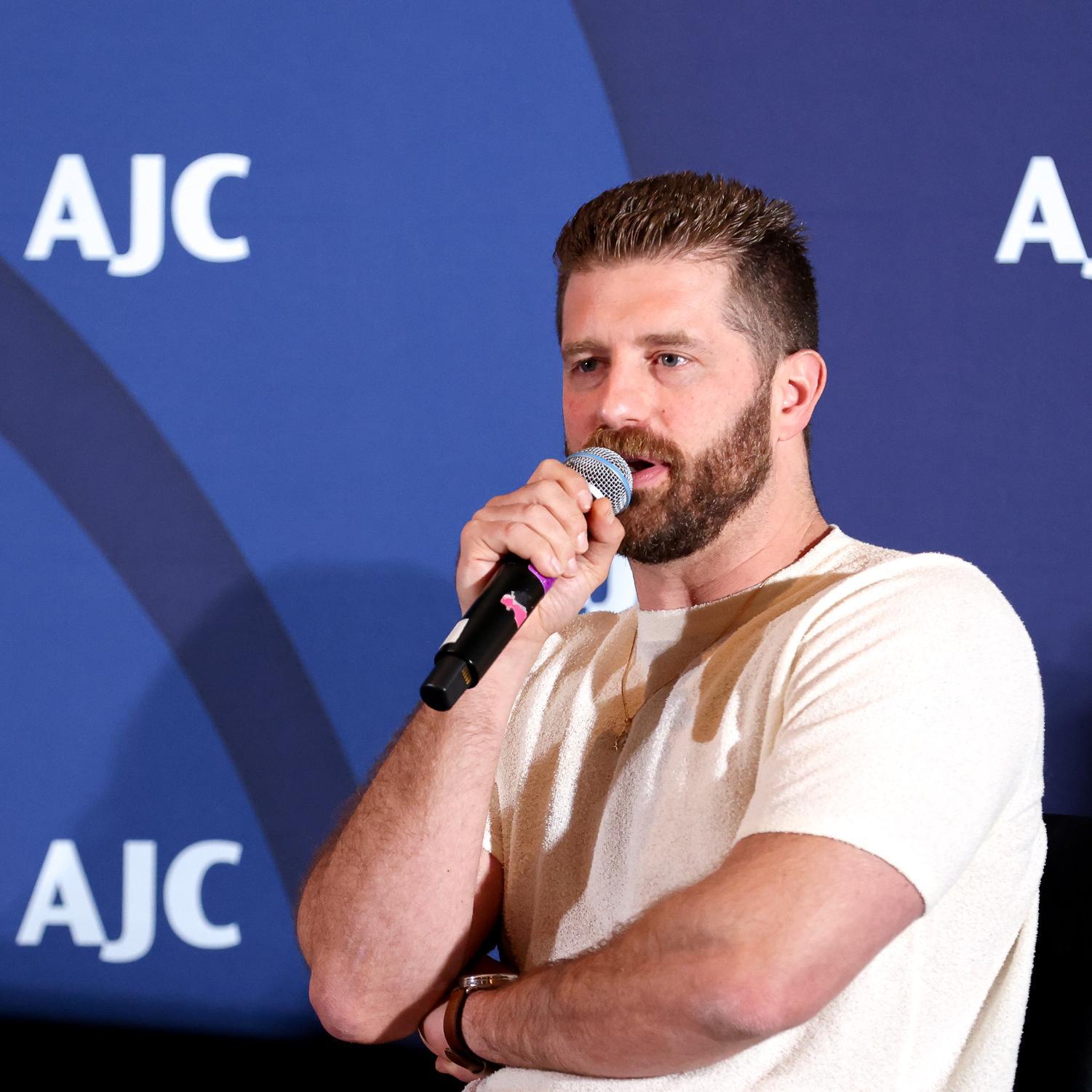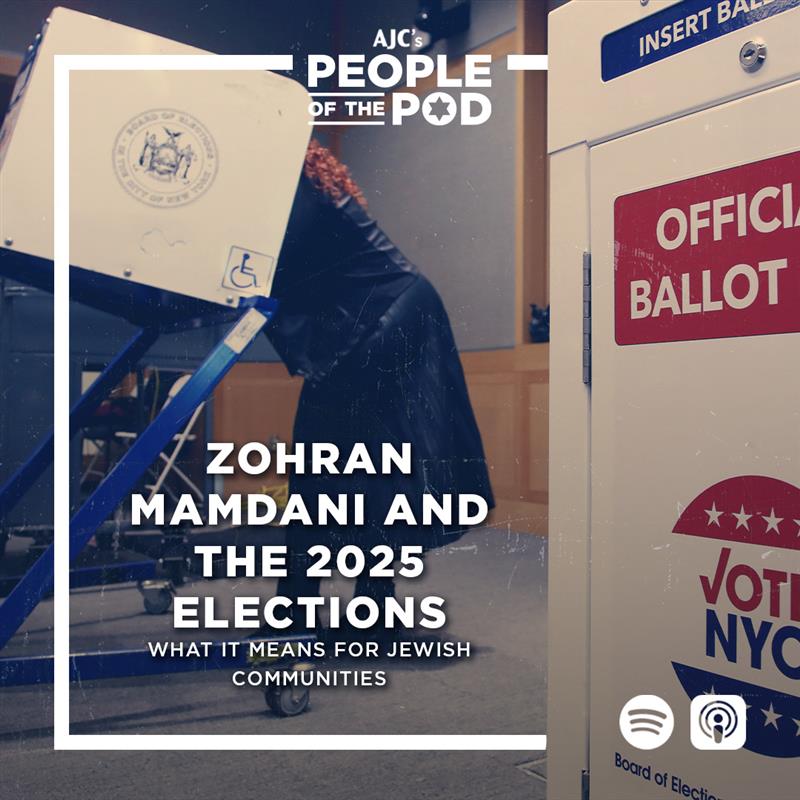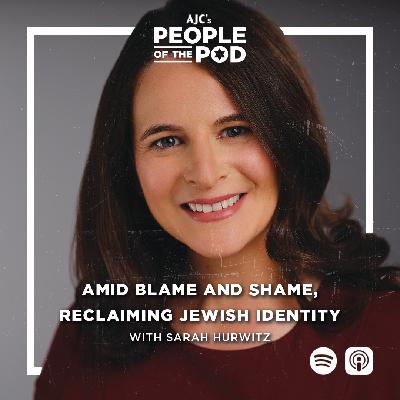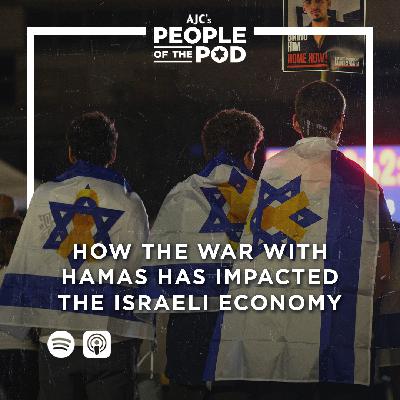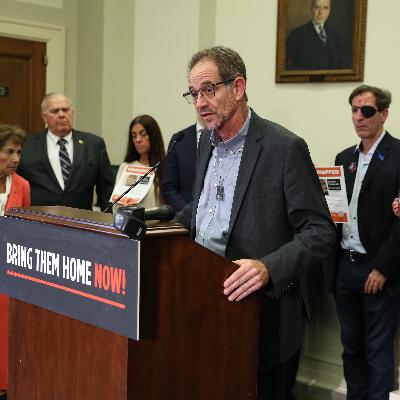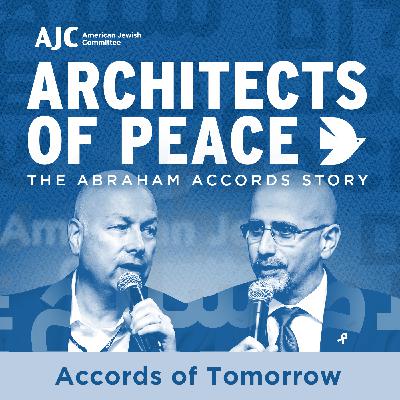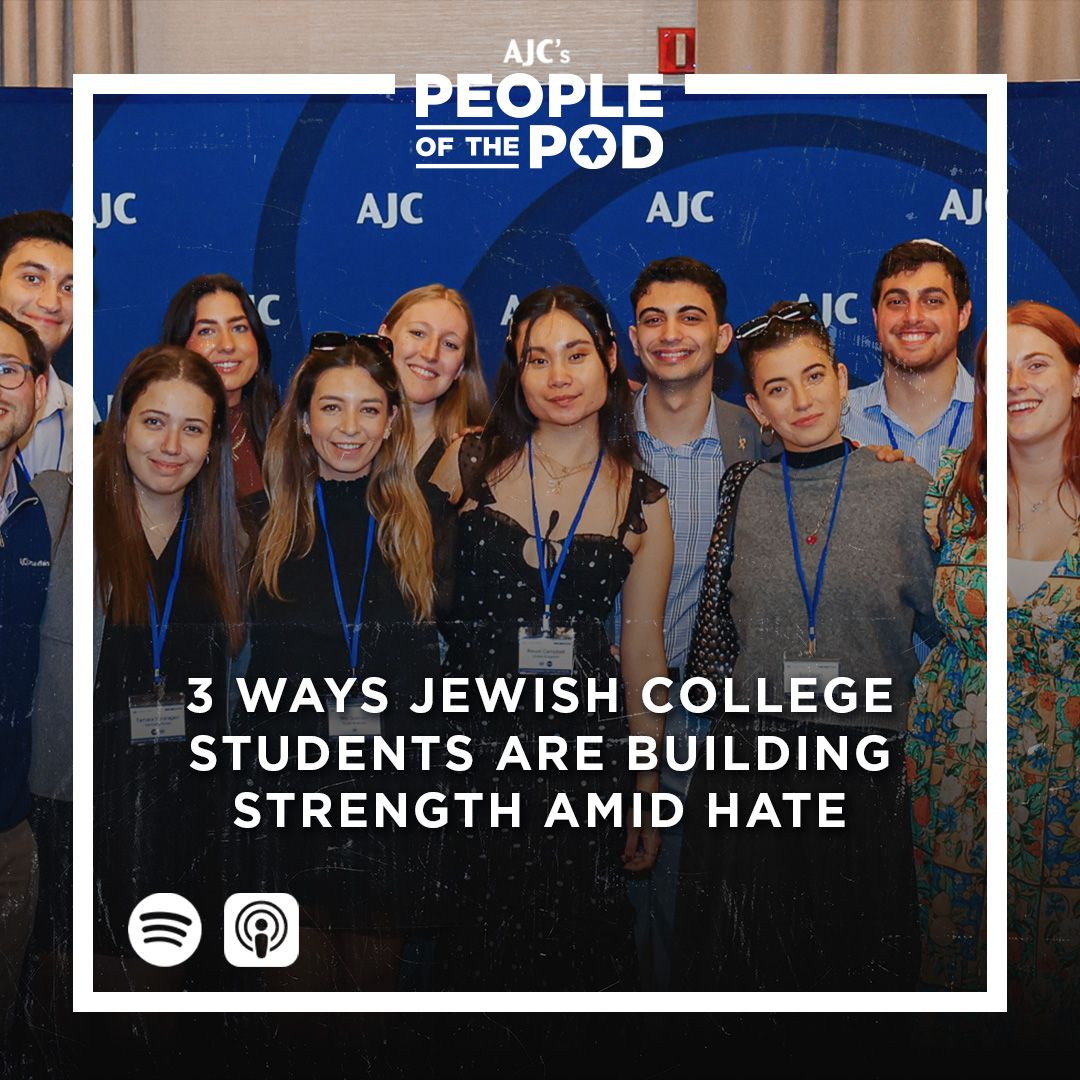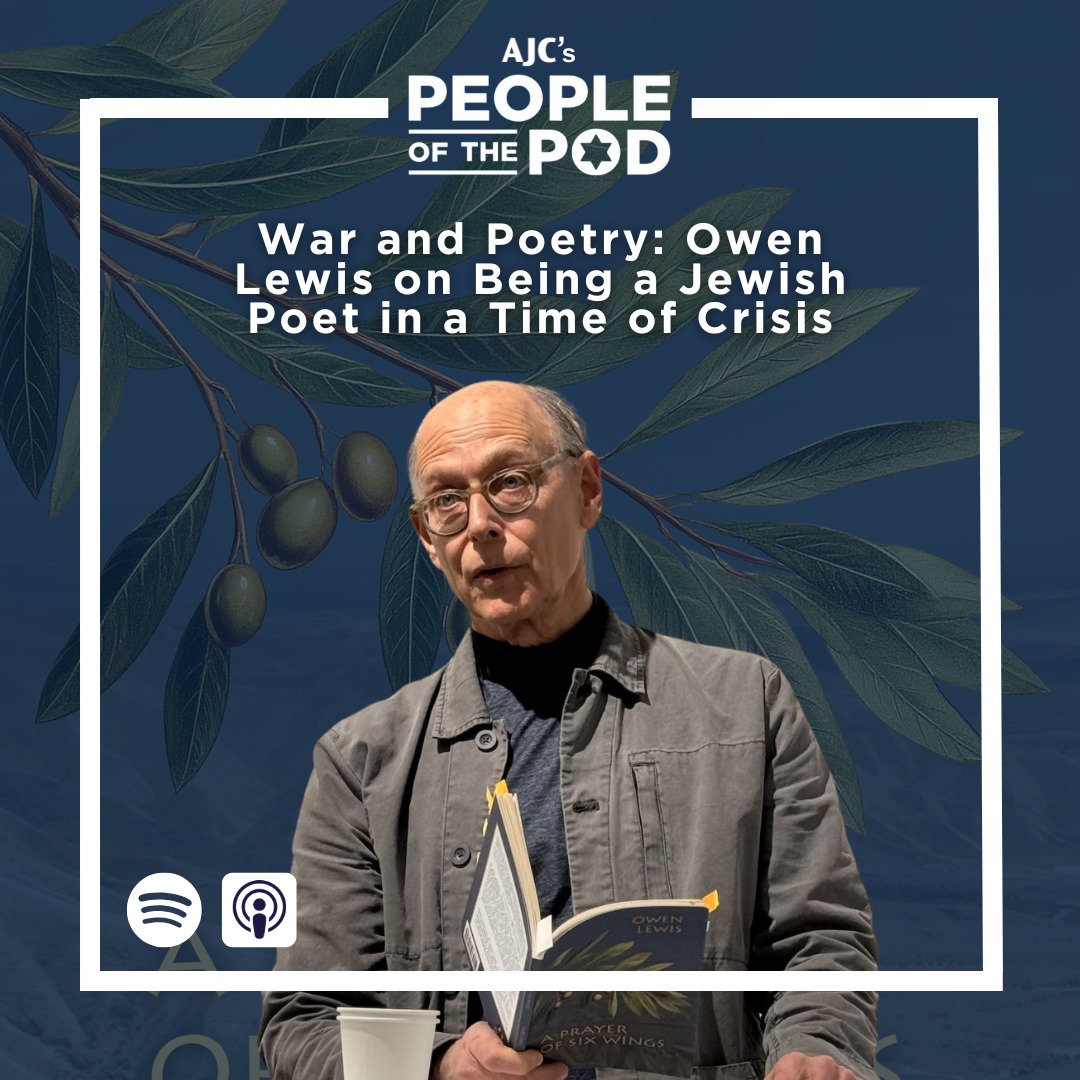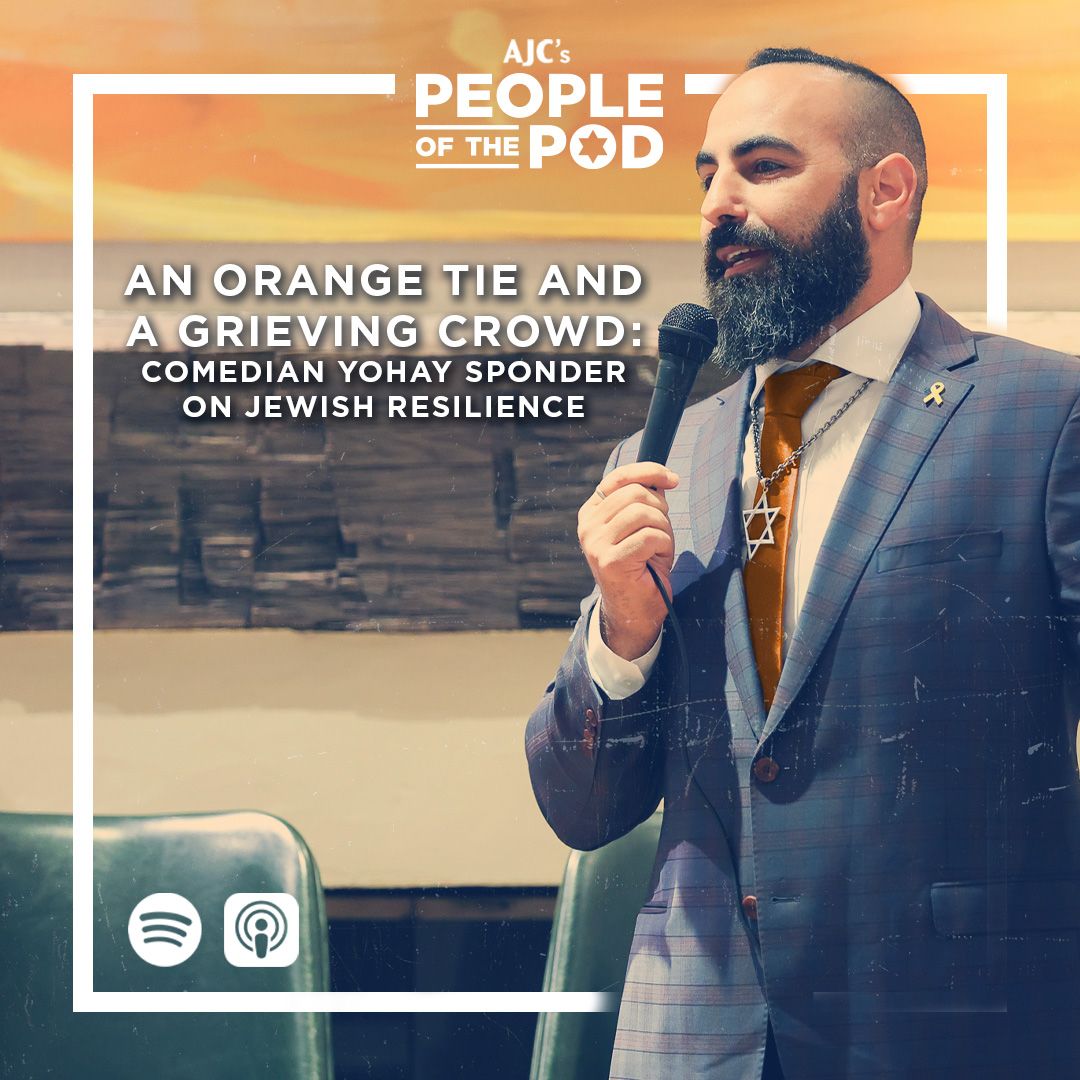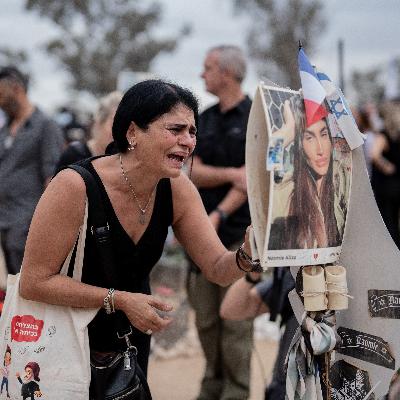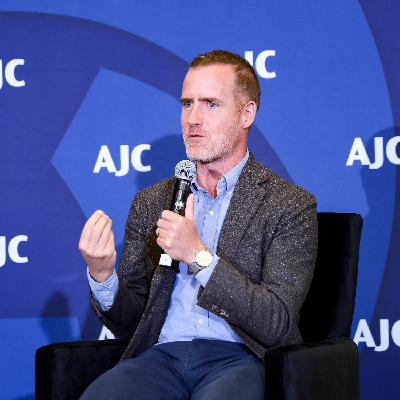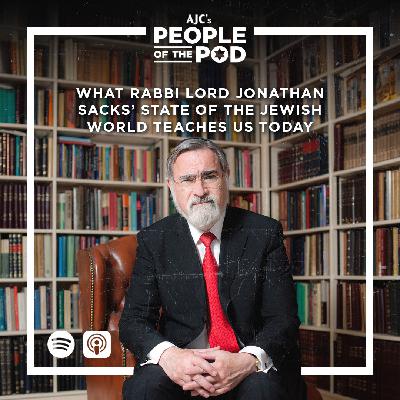From Broadway to Jewish Advocacy: Jonah Platt on Identity, Antisemitism, and Israel
Description
Being Jewish podcast host Jonah Platt—best known for playing Fiyero in Broadway's Wicked—joins People of the Pod to discuss his journey into Jewish advocacy after October 7. He reflects on his Jewish upbringing, challenges media misrepresentations of Israel, and shares how his podcast fosters inclusive and honest conversations about Jewish identity. Platt also previews The Mensch, an upcoming film he's producing to tell Jewish stories with heart and nuance. Recorded live at AJC Global Forum 2025.
*The views and opinions expressed by guests do not necessarily reflect the views or position of AJC.
Listen – AJC Podcasts:
Follow People of the Pod on your favorite podcast app, and learn more at AJC.org/PeopleofthePod
You can reach us at: peopleofthepod@ajc.org
If you've appreciated this episode, please be sure to tell your friends, and rate and review us on Apple Podcasts or Spotify.
Transcript of the Interview:
Manya Brachear Pashman:
Jonah Platt: is an award winning director of theater and improv comedy, an accomplished musician, singer and award winning vocal arranger. He has been on the Broadway stage, including one year as the heartthrob Fiyero in Wicked and he's producing his first feature film, a comedy called The Mensch. He also hosts his own podcast, Being Jewish with Jonah Platt:, a series of candid conversations and reflections that explore the many facets of Jewish identity.
Jonah is with us now on the sidelines of AJC Global Forum 2025.
Jonah, welcome to People of the Pod.
Jonah Platt:
Thank you so much for having me, happy to be here.
Manya Brachear Pashman:
So tell us about your podcast. How is being Jewish with Jonah Platt: different from Jewish with anyone else?
Jonah Platt:
That's a great question. I think it's different for a number of ways. I think one key difference is that I'm really trying to appeal to everybody, not just Jews and not just one type of Jews. I really wanted it to be a very inclusive show and, thank God, the feedback I've gotten, my audience is very diverse. It appeals to, you know, I hear from the ultra orthodox. I hear from people who found out they were Jewish a month ago. I hear from Republicans, I hear from Democrats. I hear from non Jews, Muslims, Christians, people all over the world. So I think that's special and different, especially in these echo-chambery, polarized times online, I'm trying to really reach out of that and create a space where the one thing we all have in common, everybody who listens, is that we're all well-meaning, good-hearted, curious people who want to understand more about our fellow man and each other.
I also try to really call balls and strikes as I see them, regardless of where they're coming from. So if I see, let's call it bad behavior, on the left, I'll call it out. If I see bad behavior on the right, I'll call it out. If I see bad behavior from Israel, I'll call it out. In the same breath that I'll say, I love Israel, it's the greatest place.
I think that's really unfortunately rare. I think people have a very hard time remembering that we are very capable of holding two truths at once, and it doesn't diminish your position by acknowledging fault where you see it. In fact, I feel it strengthens your position, because it makes you more trustworthy. And it's sort of like an iron sharpens iron thing, where, because I'm considering things from all angles, either I'm going to change my mind because I found something I didn't consider. That's going to be better for me and put me on firmer ground.
Or it's going to reinforce what I thought, because now I have another thing I can even speak to about it and say, Well, I was right, because even this I checked out, and that was wrong. So either way, you're in a stronger position. And I feel that that level of sort of, you know, equanimity is sorely lacking online, for sure.
Manya Brachear Pashman:
Our podcasts have had some guests in common. We've had Dara Horn, Sarah Hurwitz, you said you're getting ready to have Bruce Pearl. We've had Coach Pearl on our show. You've also had conversations with Stuart Weitzman, a legendary shoe designer, in an episode titled Jews and Shoes. I love that. Can you share some other memorable nuggets from the conversations you've had over the last six months?
Jonah Platt:
I had my dad on the show, and I learned things about him that I had never heard about his childhood, growing up, the way his parents raised him. The way that social justice and understanding the conflict and sort of brokenness in the world was something that my grandparents really tried to teach them very actively, and some of it I had been aware of, but not every little specific story he told. And that was really special for me. And my siblings, after hearing it, were like, We're so glad you did this so that we could see Dad and learn about him in this way. So that was really special.
There have been so many. Isaac Saul is a guy I had early on. He runs a newsletter, a news newsletter called Tangle Media that shows what the left is saying about an issue with the right is saying about an issue, and then his take. And a nugget that I took away from him is that on Shabbat, his way of keeping Shabbat is that he doesn't go on social media or read the news on Shabbat. And I took that from him, so now I do that too.
I thought that was genius. It's hard for me. I'm trying to even start using my phone period less on Shabbat, but definitely I hold myself to it, except when I'm on the road, like I am right now. When I'm at home, no social media from Friday night to Saturday night, and it's fantastic.
Manya Brachear Pashman:
It sounds delightful.
Jonah Platt:
It is delightful. I highly recommend it to everybody. It's an easy one.
Manya Brachear Pashman:
So what about your upbringing? You said you learned a lot about your father's upbringing. What was your Jewish upbringing?
Jonah Platt:
Yeah, I have been very blessed to have a really strong, warm, lovely, Jewish upbringing. It's something that was always intrinsic to my family. It's not something that I sort of learned at Hebrew school. And no knock on people whose experience that is, but it's, you know, I never remember a time not feeling Jewish. Because it was so important to my parents and important to their families. And you know, part of the reason they're a good match for each other is because their values are the same.
I went to Jewish Day School, the same one my kids now go to, which is pretty cool.
Manya Brachear Pashman:
Oh, that's lovely.
Jonah Platt:
Yeah. And I went to Jewish sleepaway camp at Camp Ramah in California. But for me, really, you know, when I get asked this question, like, my key Jewish word is family. And growing up, every holiday we spent with some part of my very large, amazing family. What's interesting is, in my city where I grew up, Los Angeles, I didn't have any grandparents, I didn't have any aunts or uncles or any first cousins. But I feel like I was with them all the time, because every holiday, someone was traveling to somebody, and we were being together. And all of my childhood memories of Jewish holidays are with my cousins and my aunts and my uncles and my grandparents.
Because it was just so important to our family. And that's just an amazing foundation for being Jewish or anything else, if that's your foundation, that's really gonna stay with you. And my upbringing, like we kept kosher in my house, meat and milk plates. We would eat meat out but no pork, no shellfish, no milk and meat, any of that. And while I don't ascribe to all those things now, I'm grateful that I got sort of the literacy in that.
In my Jewish Day School we had to wrap tefillin every morning. And while I don't do that now, I'm glad that I know how to do that, and I know what that looks like, and I know what that means, even if I resisted it very strongly at the time as a 13 year old, being like what I gotta wrap this up every day. But I'm grateful now to have that literacy. And I've always been very surprised to see in my life that often when

